Imagine you’re one of the twelve elite guests that get to dine on the island of Hawthorn at Chef Julian Slowik’s exclusive restaurant, but instead of getting killed in the end, you know exactly what’s happening. While the Menu is about food, the courses are not what they seem and they actually tell a story and offer a commentary on the food industry. Would you like to embark on such an experience, but for free, fully open to social critique, and where you don’t need to die in the end? Come with us on this journey and read all about the courses served on The Menu and their meaning.
What Do Chef Slowik’s Meals Symbolize in The Menu?
Lemon Caviar Served on Raw Oysters With Mignonette
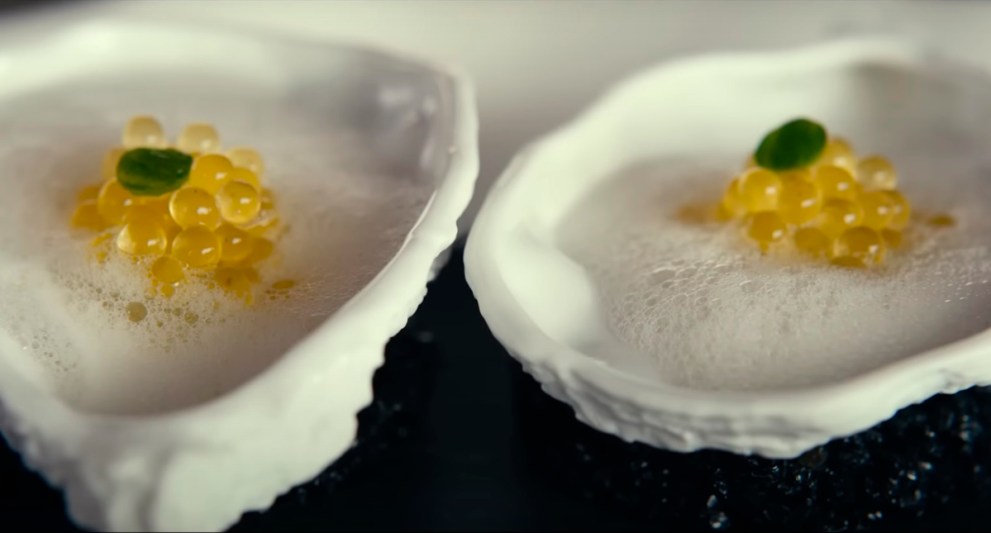
If we were paying $1,250 a person for a meal plus having to take a boat to get to a restaurant, we’d expect to get a first taste of the experience at the first chance and, of course, that’s what happens in the exclusive and exquisite journey that makes up The Menu. As soon as the guests board the boat to get to Slowik’s restaurant, they are presented with some lemon caviar served on raw local oysters with mignonette sauce. While at first nothing seems suspicious about this dish, after watching the movie we know there might be something that could’ve escaped our glance.
As the Chef hasn’t appeared at this point, he can’t really introduce the first dish as he does with most of the future courses on the menu, so our only option is to guess what he means by serving this. The oysters appear to fit the mood as the guests are eating them while traveling through their home. Yet, seeing that the movie is a full-on critique of how the elite society behaves and how they feel entitled to certain experiences, this dish could allude to them wasting resources and polluting the ocean to fulfil a superfluous pleasure. On top of that, adding a sour ingredient could be Chef’s way to let us know that things are not going to end well for the guests. But, of course, there’s no way we could’ve guessed that by our first watch.
In this particular moment, we do start to see how different socio-economical classes approach the topic of food. While Tyler rapidly comes up with an explanation for the food combo, takes pictures of the dish and overly exaggerates his food tasting, Margot claims she prefers to eat the oysters on their own, which shocks Tyler leading him to mansplain to her why she’s wrong.
Amuse Bouche
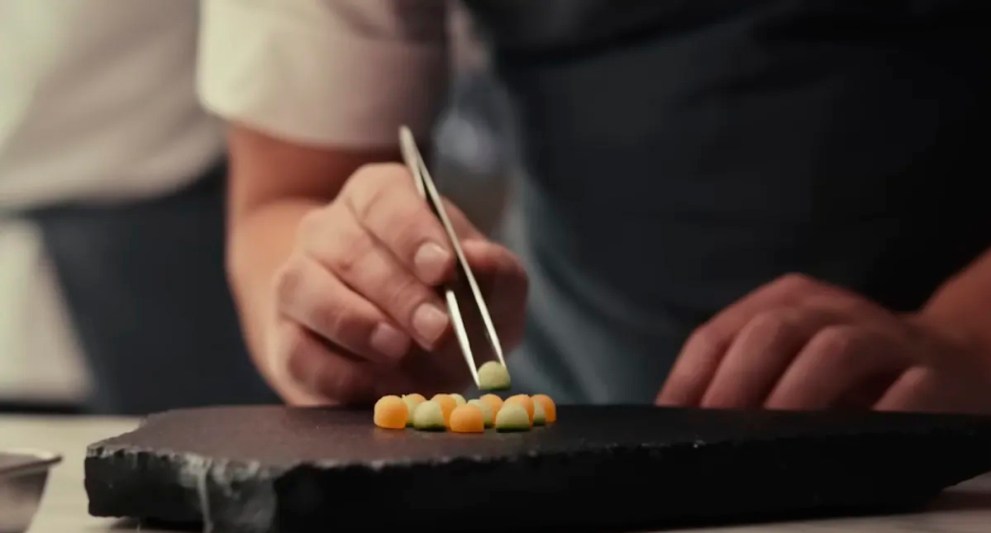
We get to the island, and we get the tour we deserve, and get to see how they harvest and prepare the food we’re about to eat – yet, Chef’s house is off limits. As we start to get hungry, we go inside the restaurant and have our own seat assigned to us – well… except if you’re Margot and ended up there by accident. And that’s when the guests are presented with Amuse Bouche, a French term that means “mouth amuser”, which includes “compressed and pickled cucumber melon, milk snow, and charred lace”.
The Chef is now visible to all as he’s working in the kitchen but hasn’t approached anyone. However, this dish says it all. Amuse Bouches differ from appetizers because you can’t order them from a menu, they are served according to the Chef’s selection and intend to give the guests a taste of what’s coming and what the Chef’s style will be. As such, for the first official dish at the restaurant to be something that people could never ask from a menu, tells us exactly what’s coming, as the guests will have no say regarding what they eat or how the evening goes.
On a side note, why he chose those ingredients and plated them that way, could have infinite meanings. Maybe the pickled melons are members of the elite, too fancy to stand on a regular plate, hence the lace, trapped in their circle of dodgy businesses and cocaine, thus the milk snow contouring them in a circle.
First Course: The Island
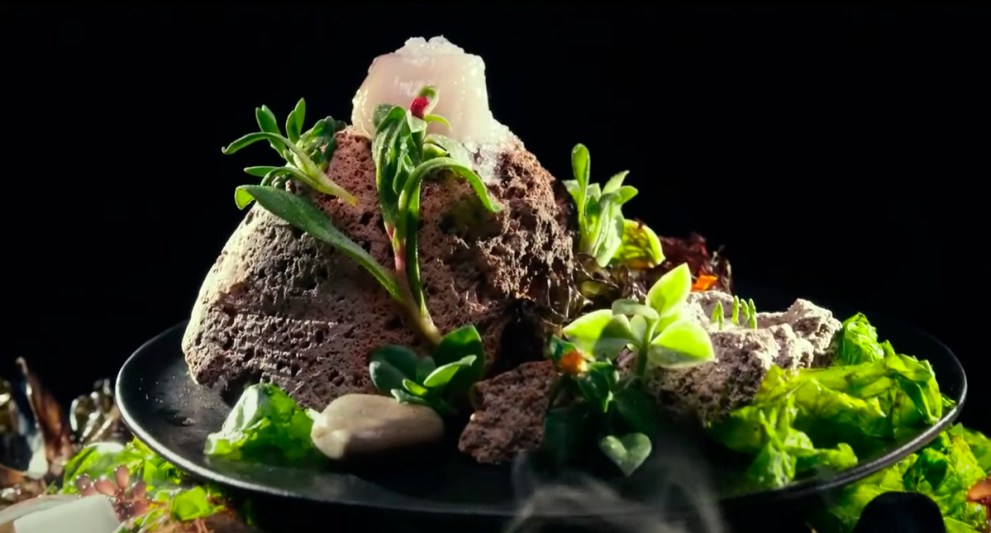
The bell rings and we hear the clap. That’s right, we’re going into the first course of the menu, but while the guests wait for the food Chef Slowik greets them and tells them that during the evening they will ingest fat, salt, sugar, protein, bacteria, fungi, animals, plants, and, even entire ecosystems. As our stomach starts to protest, The Island is delivered to the table, a careful composition with “plants from around the island placed on rocks from the shore, covered in barely frozen, filtered seawater which will flavor the dish as it melts.” Sounds good, right?
After elaborating on the ingredients, Slowik starts his storytelling by hitting the right spot as he says that the people on the island are not important when compared to nature. While nature stands the test of time without any human intervention, whatever humans do is meaningless and represents nothing but nanoseconds.
This one is pretty obvious. The dish represents the ecosystem present on the island, and how the elites eat and mistreat nature for their pleasure. Moreover, his comment hints at the end of the movie, as everyone’s (almost everyone’s) nanoseconds will be over, and with them and the restaurant gone, the island will go back to being what it always was and what it should have always have been – unexploited for unnecessary luxuries only accessible to those with capital.
Second Course: Breadless Bread Plate
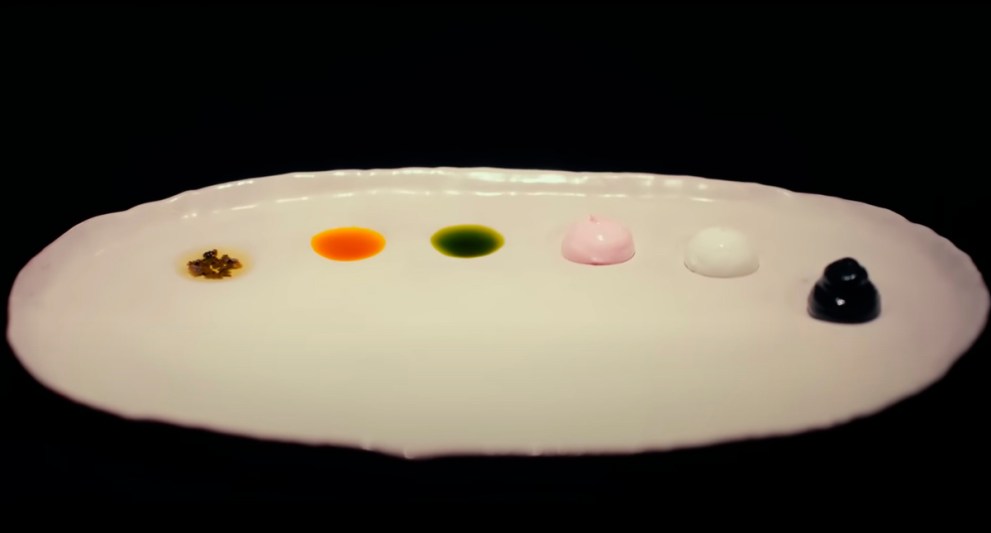
Well, if you were confused about whether you should’ve eaten the rock as well, don’t worry, there’s plenty of food to enjoy still. By now, the bell has rung and the Chef has clapped which means the second course is coming: the breadless bread plate, no bread with savory accompaniments. Julian explains the origin and meaning of bread in religion and how important and accessible it is for common men, which is exactly why he will not serve the guests bread. After all, these guests are everything but common, hence they deserve something more refined and worthy of them.
Needless to say, Margot is not enjoying her meal as there’s no food in it, while Tyler and Lilian are tasting the food and justifying the chef’s choice. When the businessmen try to ask for actual bread, they are denied and the waitress evens confronts their position at work, making them feel small and showing that just because they have money, it doesn’t mean they get to change the menu. In the end, the elite’s ridiculousness is fully exposed and this course shows that food is universal and that rich people are no more than common humans.
Third Course: Memory
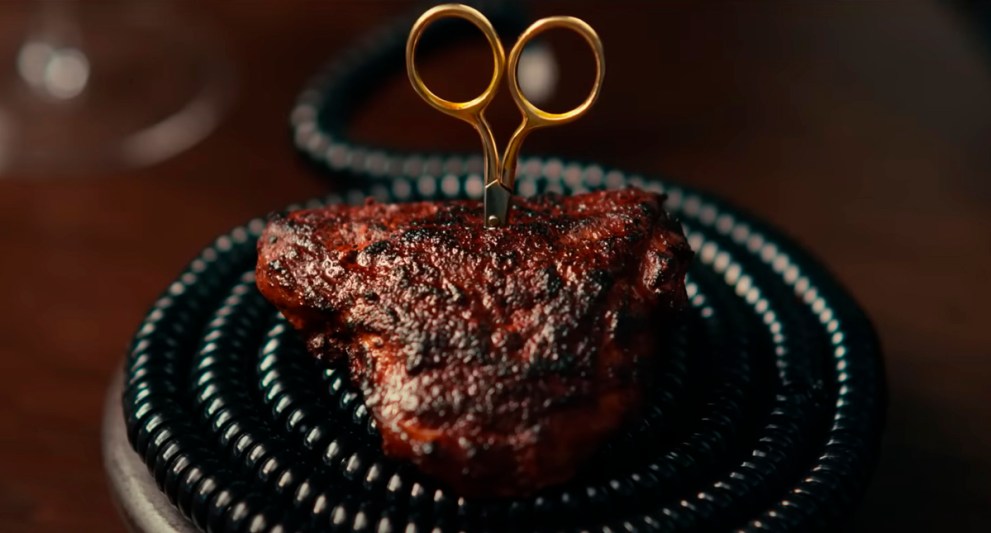
Bell, clap, you know the drill. Here comes the third course which is a Chef’s classic called Memory and includes “house-smoked Bresse chicken thigh al pastor” with their own “tortillas made with heirloom masa” and it’s meant to take you on a journey down memory lane. To illustrate the meaning of the dish, the Chef shares with the guests the memory behind it, set in a time when he used to have Taco Tuesdays with his family, and, on a particular Tuesday, his father got home drunk and hurt his mother. After screaming and begging him to stop, the only way Julian saved the situation was by stabbing kitchen scissors into his thigh – now the Chef recognizes he should’ve stabbed him in the throat.
Although the dish seems very self-explanatory and the guests are quite shocked, though they still think it’s part of the theatrics of the Chef, the Chef reveals that they updated the classic with images engraved by a laser machine on the tortillas. That’s when the guests see in the tacos compromising pictures and information of each of them, from proof of cheating to Tyler taking pictures during the dinner even though it was forbidden to the restaurants that closed because of Lilian’s critics. Besides illustrating why Julian lost his love for cooking, these memories also show how the elites like to live for appearances, hiding their fatal flaws and not facing the consequences of their behaviors.
Fourth Course: The Mess
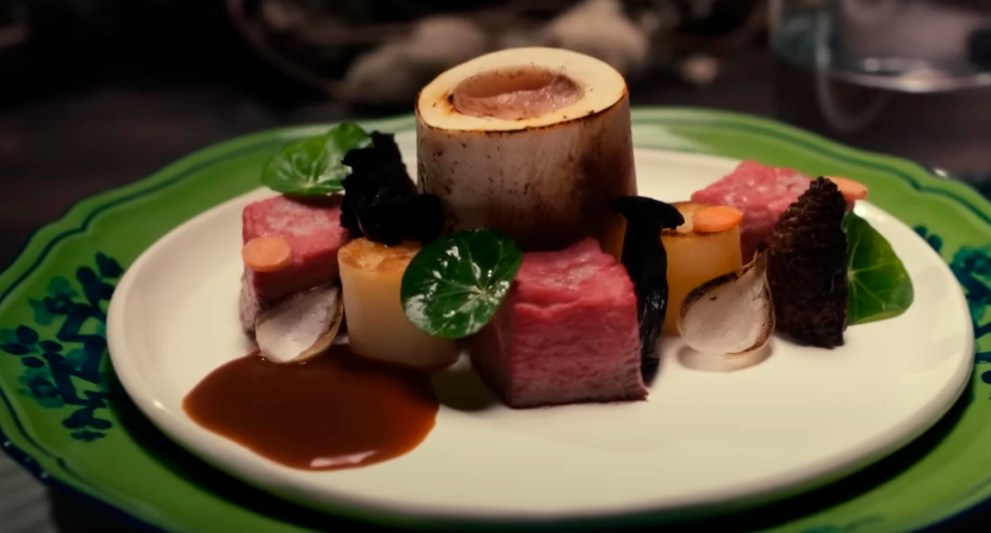
The mood is turning and we can feel it, but we’re still talking about the chicken and the tacos, as the waiters are taking care of the fourth course prepared by sous-chef Jeremy which seems to include a white sheet – intriguing. Before the guests see the food, the Chef compliments Jeremy but says he’ll never be as good as him. As such Jeremy shoots himself, which showcases how people live their lives, under constant pressure, by trying to meet people’s expectations to achieve what is deemed successful.
By now, even we are shocked, but Julian says we paid for this exclusive experience, so we guess, it’s okay. The Mess arrives with “pressure cooked vegetables”, which can represent the pressure and stress we live under, “roasted fillet, potato confit, beef jus, and bone marrow” imitating our bodies and blood, and the state of violence we put ourselves through – just like Jeremy. All of this, sometimes, is because of how manipulative people at the top can be and bring out the worst in us.
Palate Cleanser
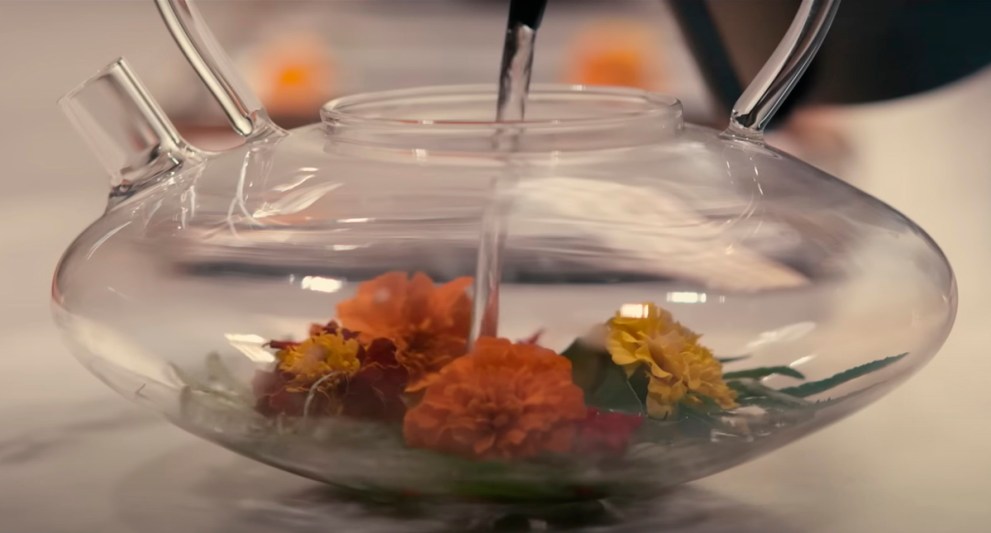
At this point, after one death and Richard losing a finger, it’s safe to say that we need something to calm ourselves, and nothing like a good cup of tea will do the job. It’s time for the palate cleanser, wild bergamot and red clover tea.
As tea time is also a time to socialize, the Chef lets the guests question him about the menu and he reveals that they are an essential part for the menu to work properly. On top of that, he’s bluntly honest and explains why he despises each of them and how they have impacted how he looks at his craft. The conclusion we arrive at is that the elites are impossible to please as they feel entitled to always have more and never value what they actually have.
As Julian kills his investor in front of the guests, he makes it clear that no one is leaving the island alive, including him and his crew, as they are all part of the problem that is the system. So drink your tea because things are about to get wild!
Man’s Folly
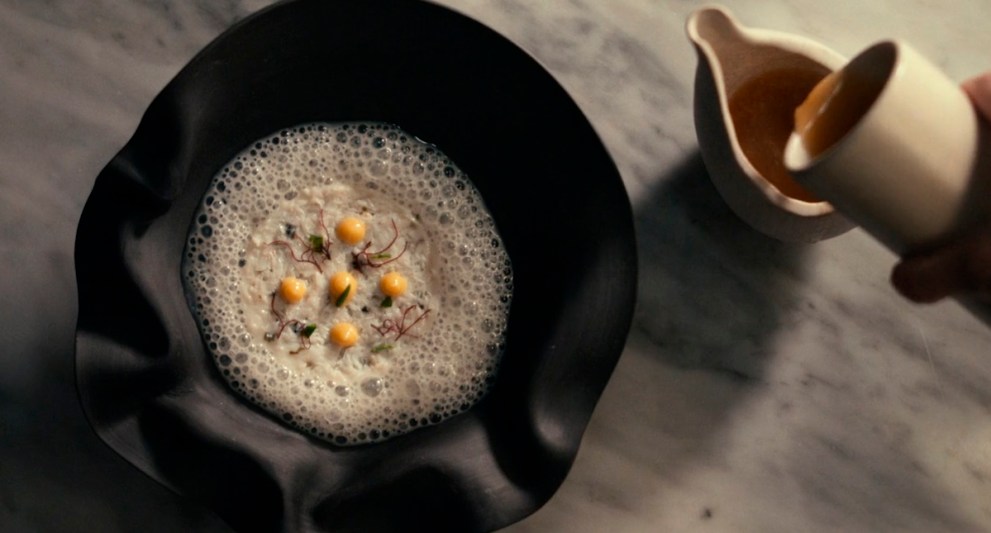
For the next course, the guests take a step outside and sous-chef Katherine shares with them that the Chef tried to have sex with her and as she refused him, he ignored her for eight months. Katherine says he can do this because he’s the star, showcasing how people justify unjustifiable behaviors done by the elites. She then stabs him with kitchen scissors showing that, after all, he’s not that different from his father, and that most men are problematic.
Thus, the Chef offers the male guests a chance to try to escape and leave behind their female companions, which they do without hesitating – well, except for Tyler, but he has his own agenda -, proving his point. The women are led back inside to eat Man’s Folly with “Dungeness crab, fermented yoghurt whey, dried sea lettuce, umeboshi, and kelp”, a dish that represents all the mansplaining and humiliation they have to go through daily. They, then, learn that the idea to kill everyone at the end of the menu was Katherine’s and that she’s taking no bribes. Hence, no, your money can’t buy everything!
Passard Egg
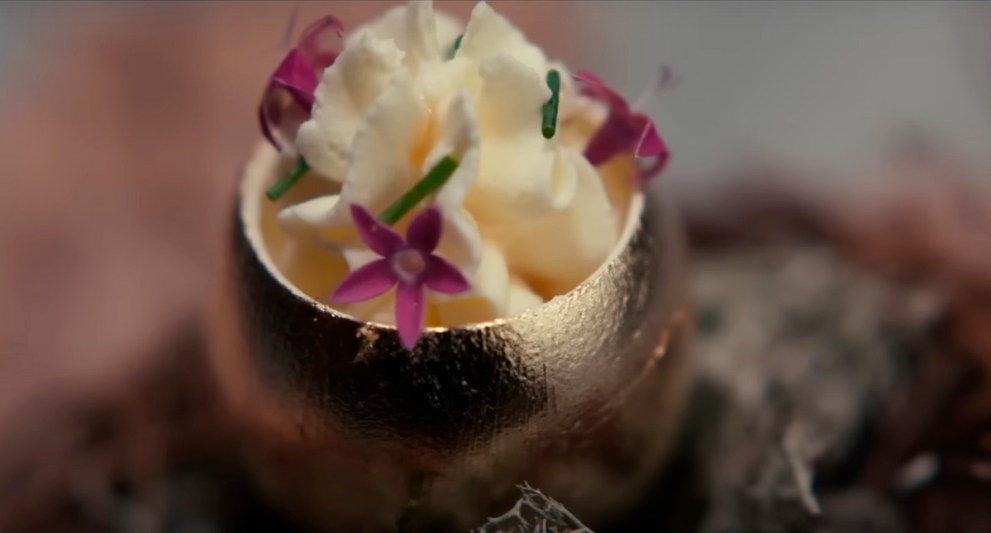
We are almost reaching the end, and if you were the last man to be caught, you get to experience Passard Egg which includes an egg with crème fraîche, and maple. But don’t think you have any control over this, it’s all planned out, so don’t run aimlessly. They know someone will hide with the chickens, thus serving an inspired dish. So, be sure to hide there!
As the male guests return and sit back at their tables, the Chef unmasks Tyler who knew from the start that the guests would die by the end of the dinner and still paid for Margot to come. This doesn’t please the Chef one bit as he sympathizes with Margot as she works in the service industry, leading us to the next dish that wasn’t on the menu. But food is food, right?
Tyler’s Bullshit
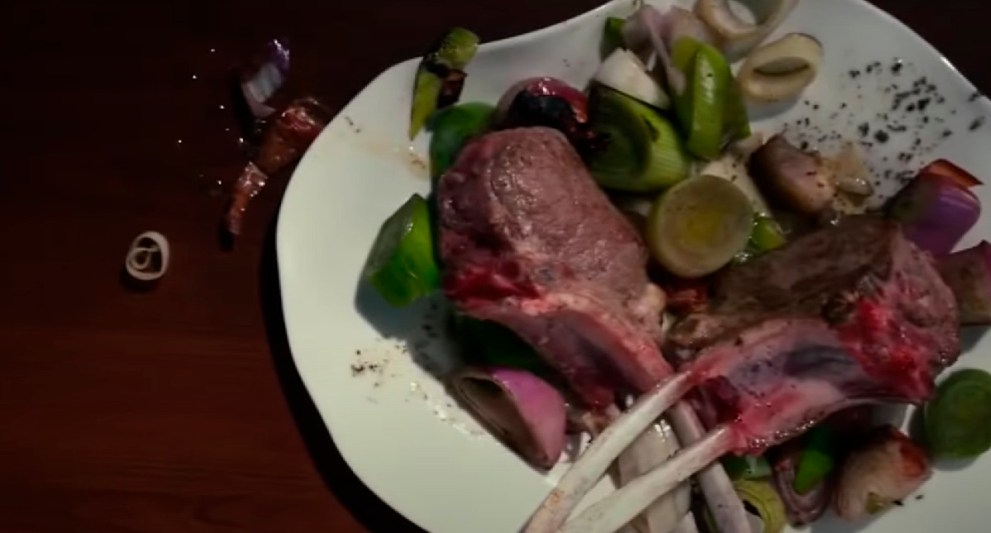
Tyler’s Bullshit includes “undercooked lamb, inedible shallot-leek butter sauce, and” an “utter lack of cohesion” made by Tyler himself per the Chef’s request. After making everyone watch him prepare the dish, heavily insulting him and telling him that he drained the mystery from the culinary art, the Chef whispers something in his ear that leads him to leave the kitchen to hang himself.
Just like Jeremy, Tyler couldn’t handle the disappointment of not being good enough both for his idol and as a food expert. In a way, this dish shows that sometimes people who claim to know more about a certain subject than everyone, in fact, don’t really know how to put their theoretical knowledge into practice. And this is seen on a daily basis when, for instance, people see in better light someone that studied five years of electrical engineering when compared to someone with decades of experience as an electrician. Yet, we can’t deny that under pressure things are harder and anyone can fail, leaving things undercooked and messy.
Birthday Cake
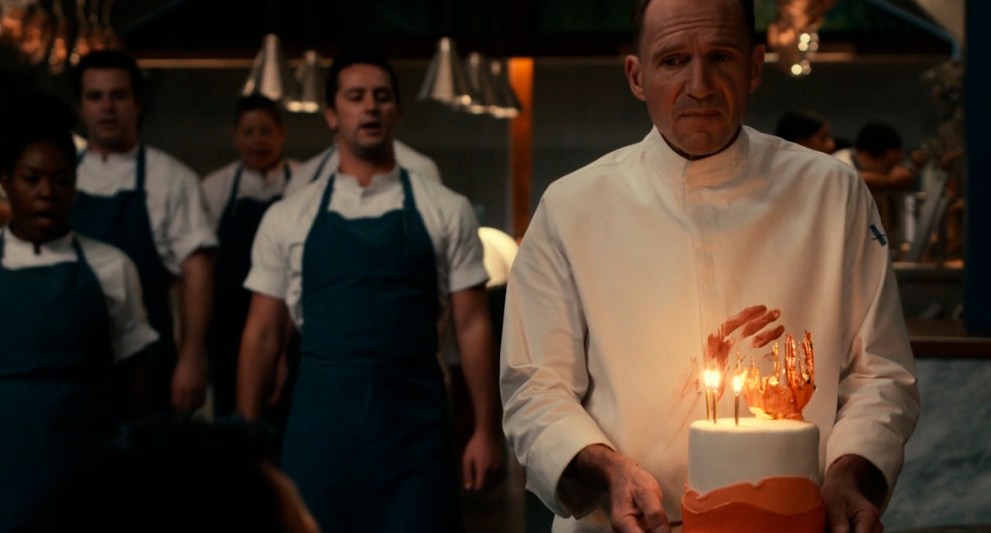
Sorry, there’s some mystery that we have to keep, so we’ll skip the last savory course and go straight to cake. If Margot, who enjoys eating, didn’t need to see it, we also don’t. At this point, Julian asks Margot for help with the dessert, so she leaves to get a barrel and when she comes back, they are singing happy birthday to one of the businessmen with a nice cake.
To be honest, there’s no way of knowing if this cake was part of the menu or not, as things went a bit off-track because of Margot’s presence. We do know that one of his friends told the staff about his birthday, and it a was personal touch, so very in line with the whole menu, even if in a morbid moment of the evening. Yet, it could’ve been just to give Margot some time.
Supplemental Course: A Cheeseburger
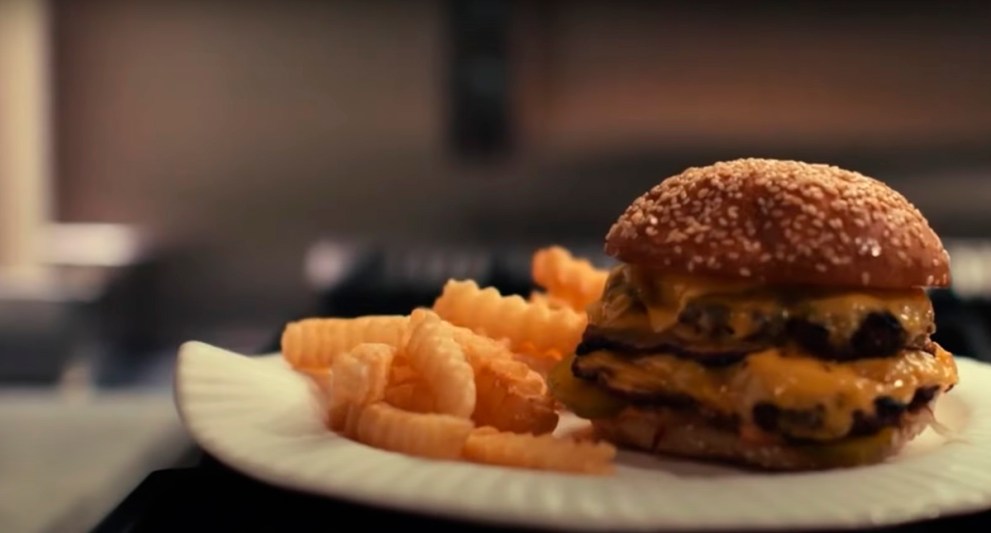
Just as the Chef announces that his crew is preparing the last course, Margot confronts the Chef, saying that he doesn’t serve real food and that she wants to send her food back as he cooks with obsession, not love. This is something no other guest would dare say, since it would damage their reputation in a place like this. When Margot left the restaurant upon Chef’s request, she ended up at his home and found a picture of him looking happy as he’s wearing a “kiss the cook” apron in a frame that reads “Hamburger Howie’s employee of the month” which made her think of a way to escape.
As a result, Margot tells him she’s starving and asks him to make her a real cheeseburger which ends up reminding Julian of his love for cooking and for feeding people who are hungry and just want to enjoy real food. After receiving the dish and tasting it, Margot claims she’s not hungry anymore and asks to take the rest to go, which Julian allows as it’s not something that a rich person would do – they would just leave it on the plate, not savoring until the very last piece. As a result, Margot gets to escape. But we don’t, there’s still the final course!
Final Dessert Course: S’Mores
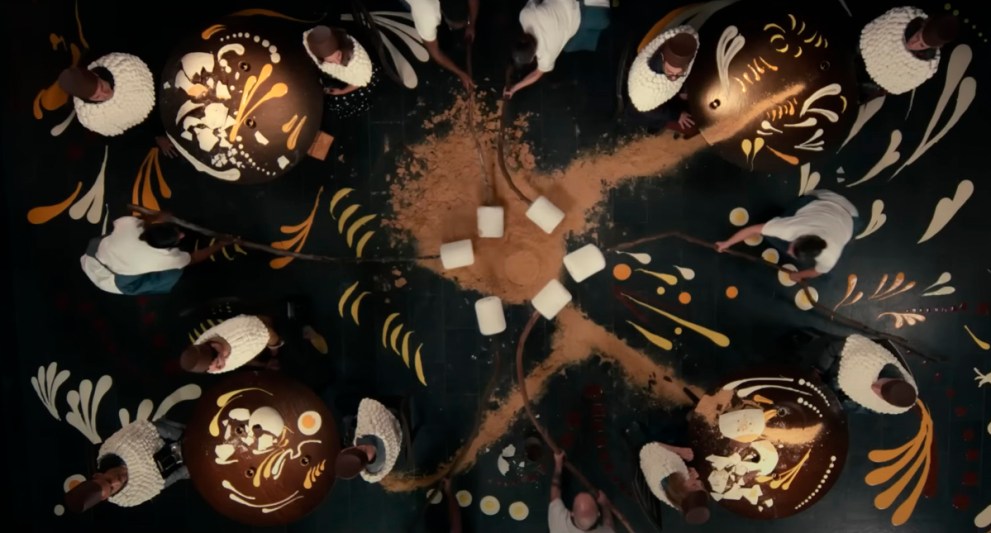
We’ve reached the grande finale, the last dessert course, s’mores made with “unethically sourced chocolate and gelatinized sugar water imprisoned by industrial-grade graham cracker.” To the Chef this dish is an assault on the human palate and represents everything that’s wrong with society, although it represents innocence and childhood.
After wrapping the guests in marshmallows, and beautifully plating the floor, he sets fire to the place, killing everyone and destroying the restaurant. Thus, with fire, the culinary world is purified as it gets rid of fancy critics, artists (the Chef himself), and elites that created the system the Chef despises.
Now you know everything about all courses served on The Menu and what their meaning is. Now that we’ve witnessed this spectacle from a safe distance, we can just leave and maybe go to McDonald’s, but before you go, make sure to check out our other entertainment content here at Twinfinite.

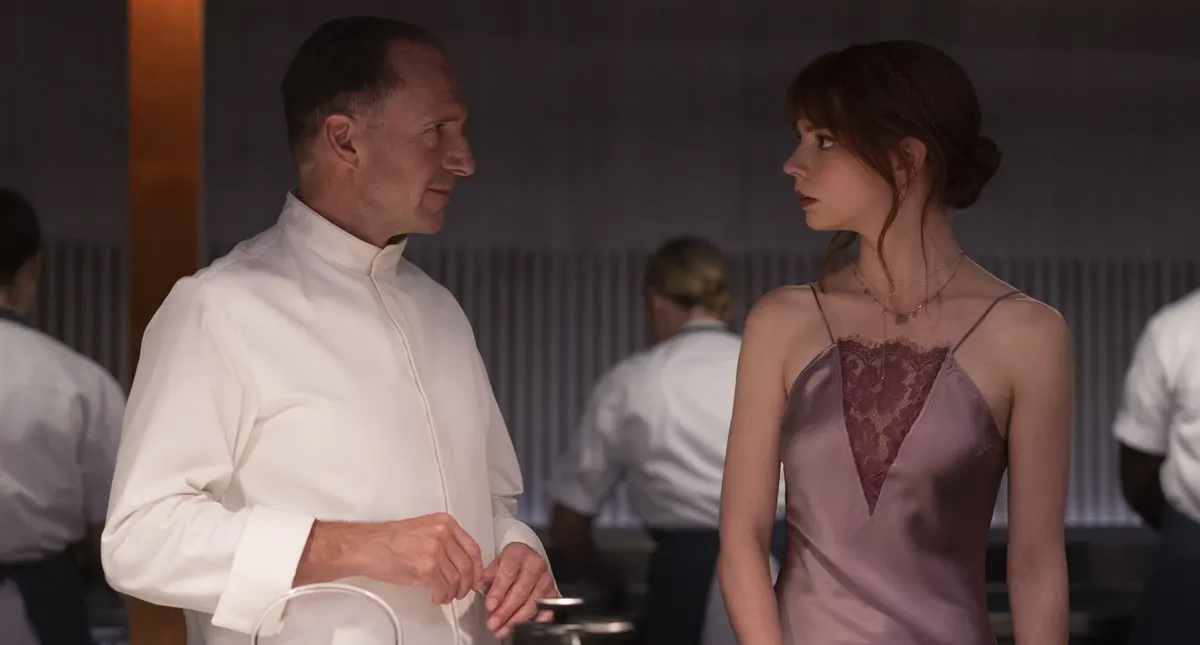
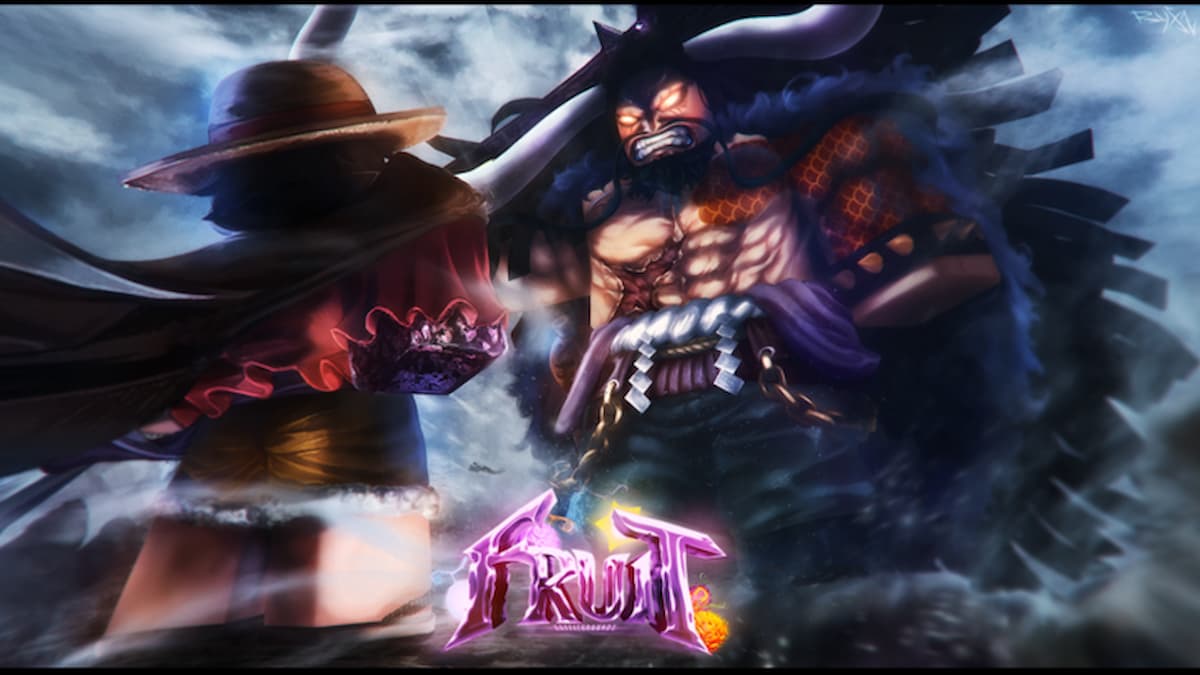
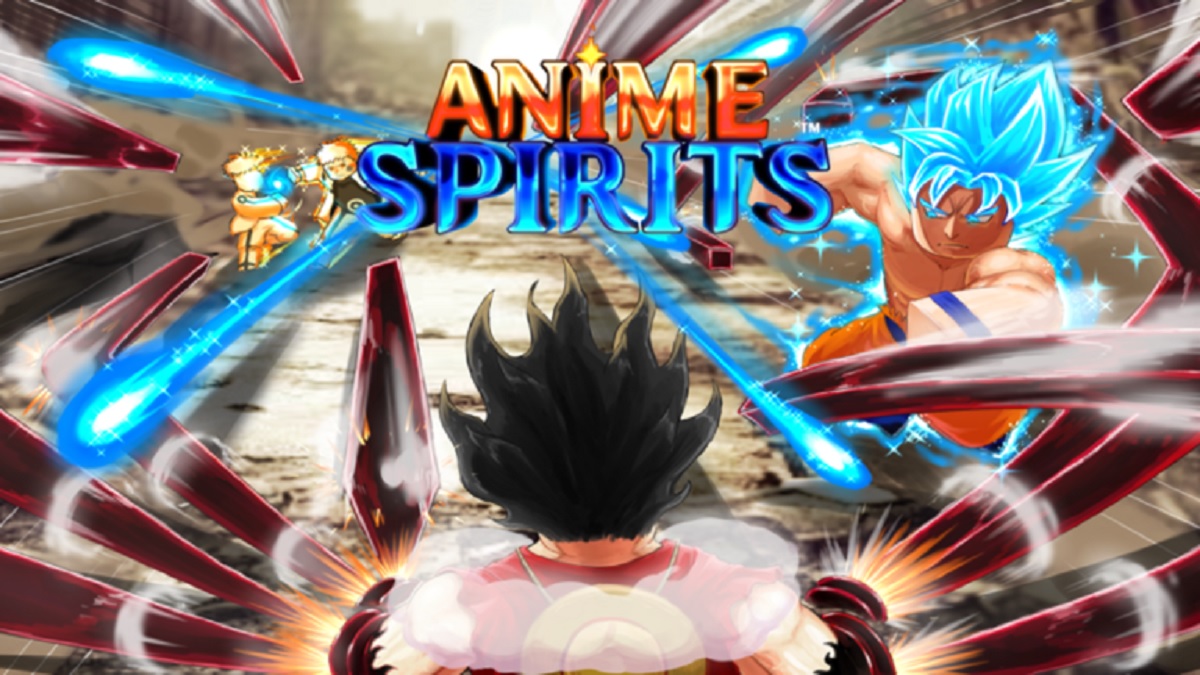

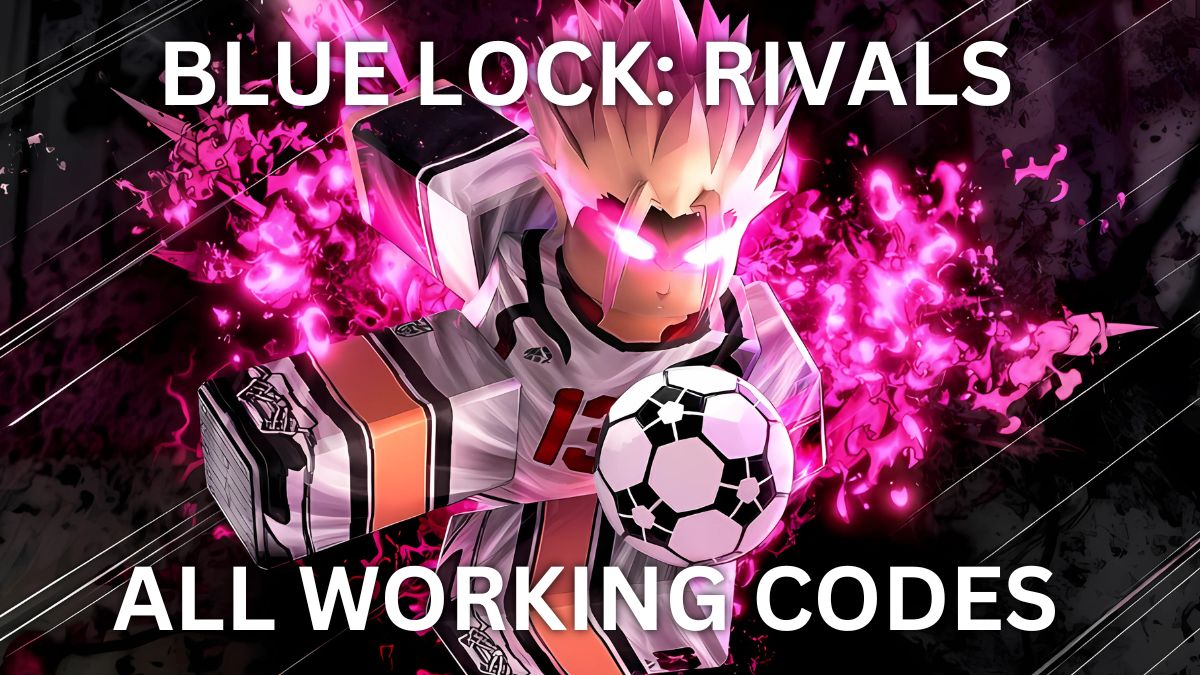
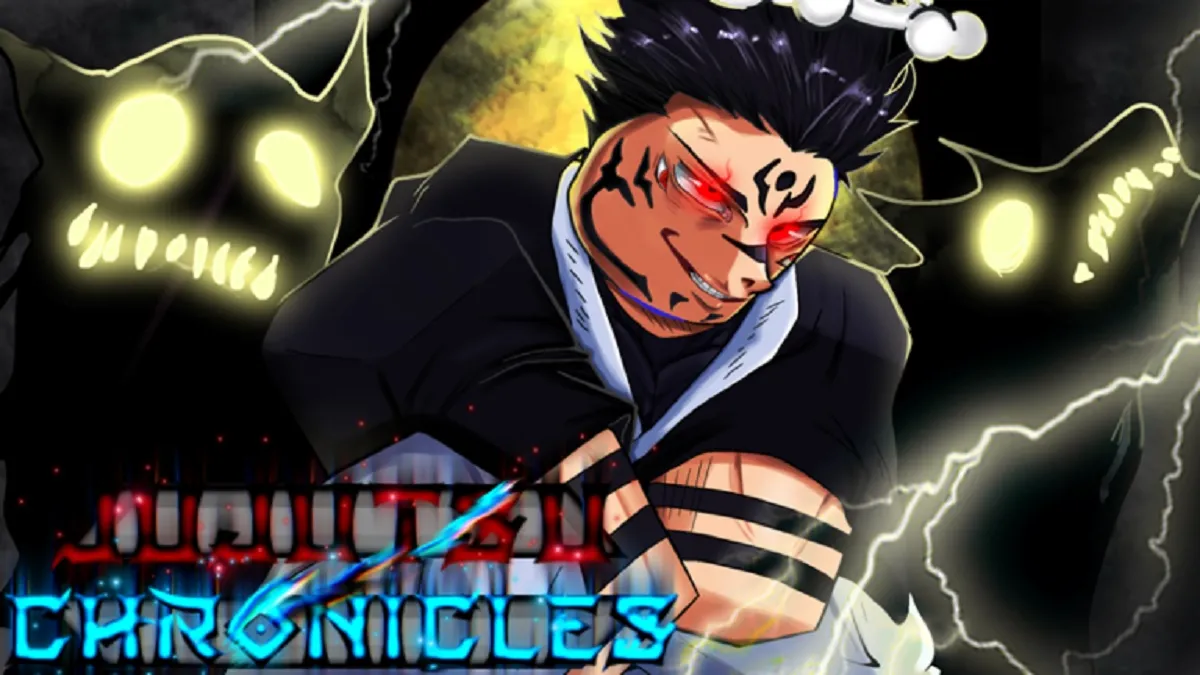
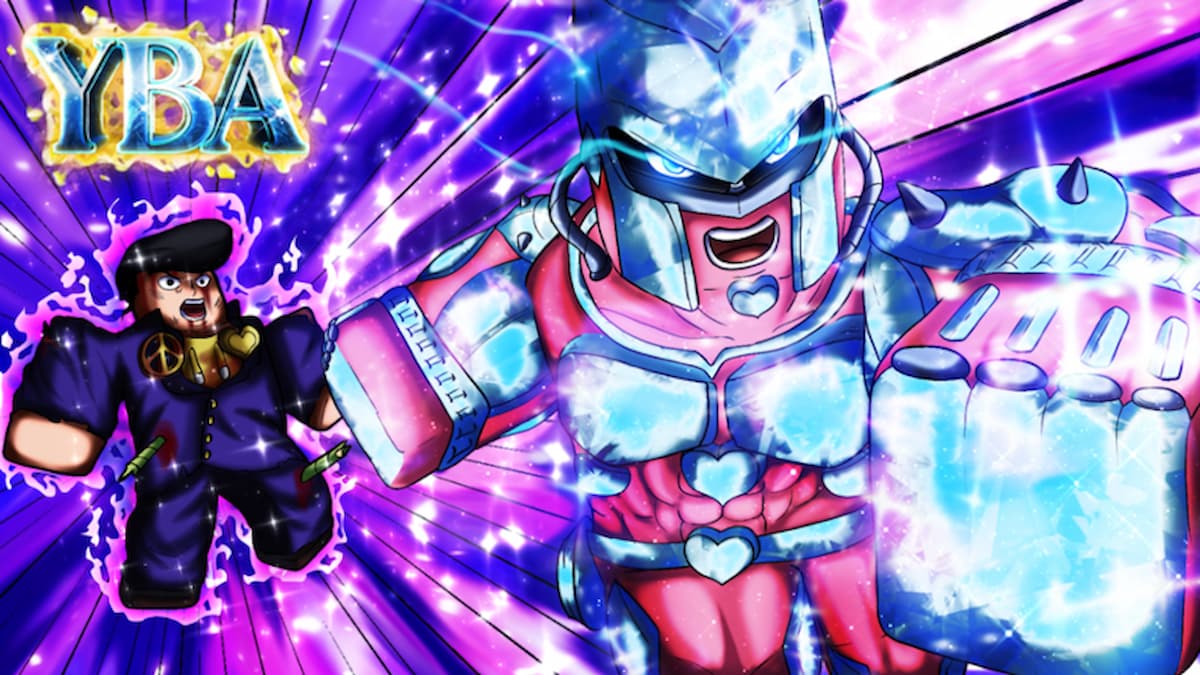

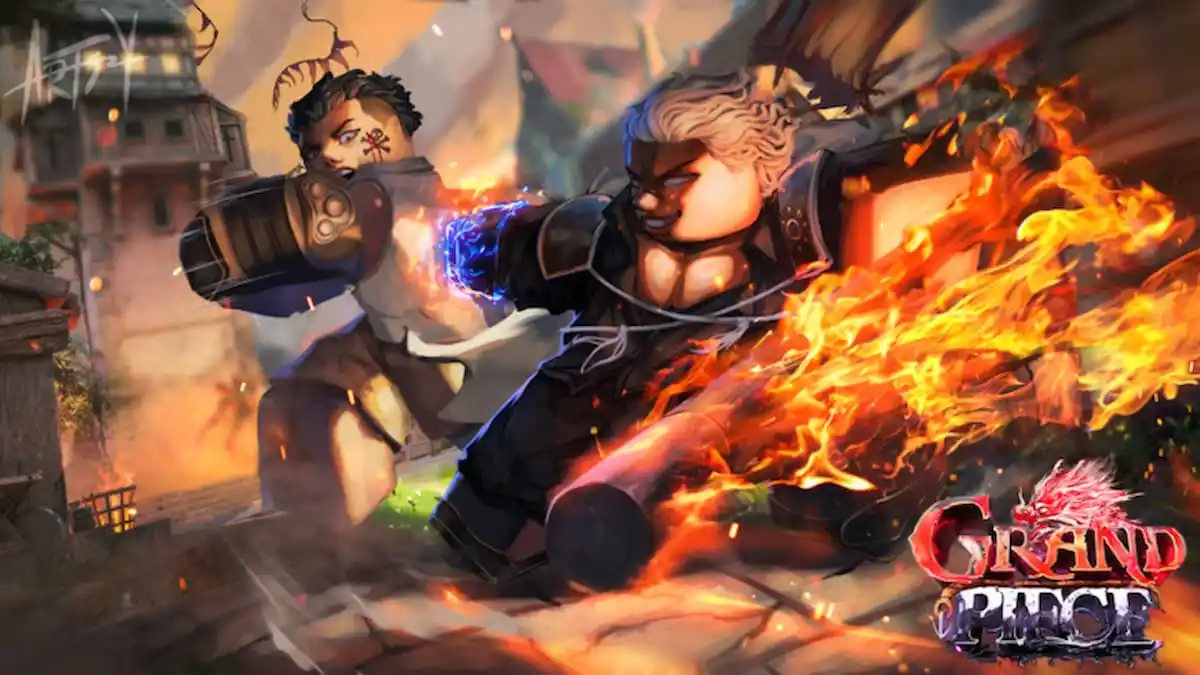
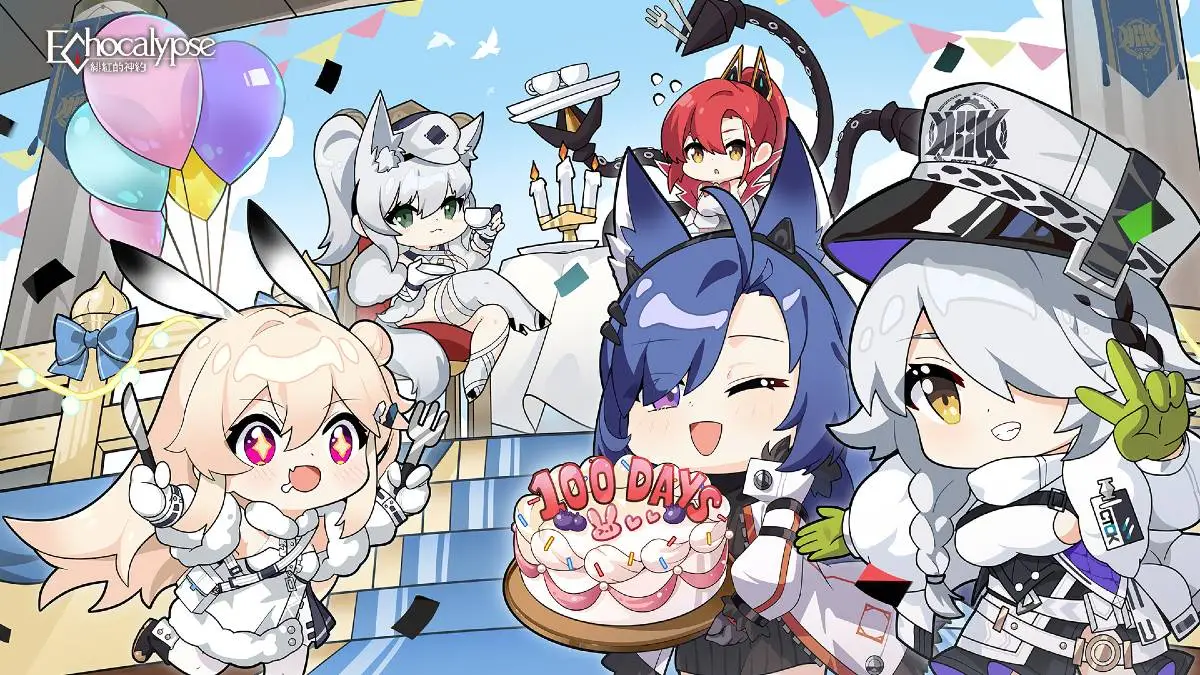
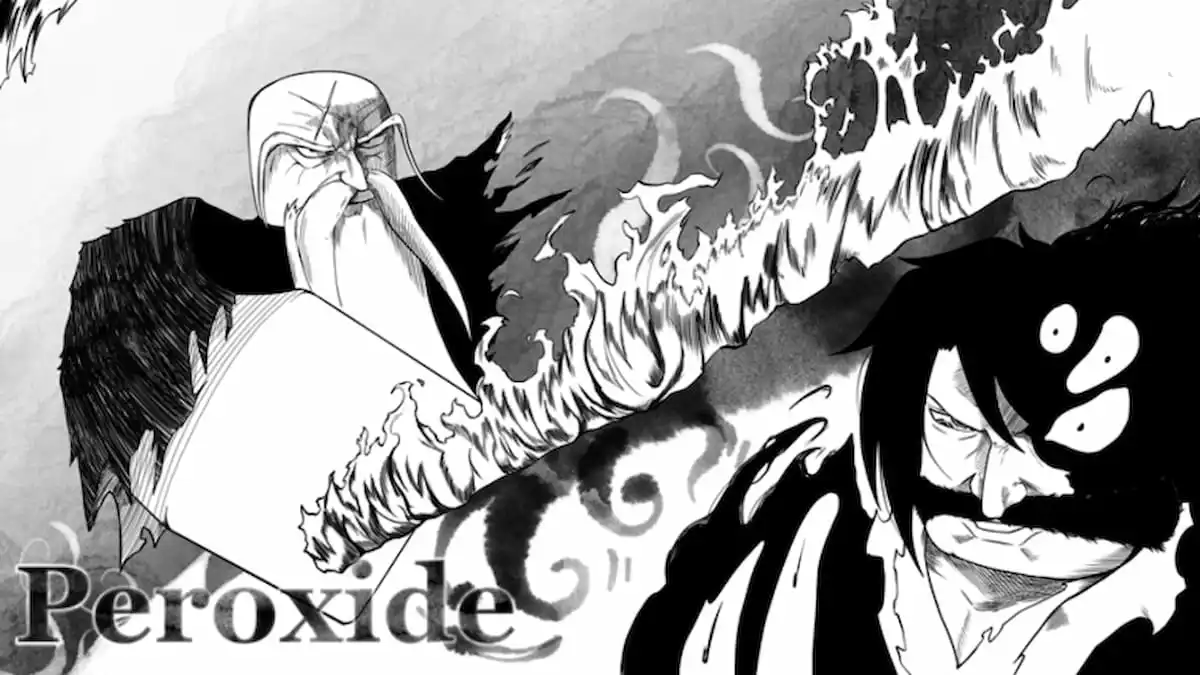

Updated: Jan 18, 2023 12:29 pm